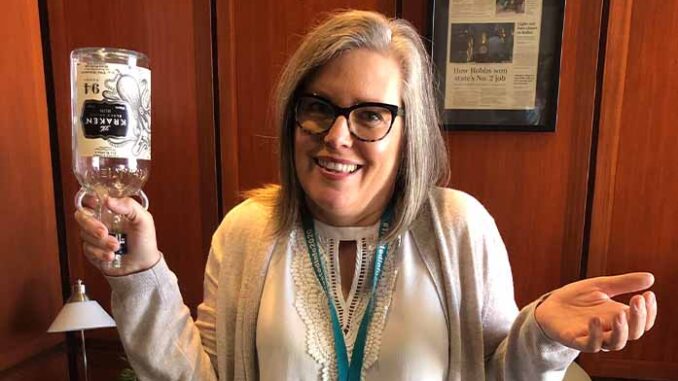
While Katie Hobbs continues to ignore public demands that she debate Kari Lake, three new reasons she may want to avoid a face-to-face with her gubernatorial opponent came to light this past week with the issuance of three Decision Orders by the Arizona Supreme Court in election challenges to voter initiatives.
The Decision Orders were signed by Chief Justice Robert Brutinel, and point the finger directly at Hobbs for failing in her role as Arizona Secretary of State to implement a process that allows petition circulators to comply with Arizona Revised Statute 19-118.
One of the three challenged initiatives involves the Voters’ Right Tto Know Act initiative, which if passed by voters in November would enact statutes to require public disclosure of the original sources of contributions of over $5,000 to fund campaign media spending in an election cycle.
One basis for the legal challenge to the petition signatures submitted to hope of getting the Voters’ Right To Know initiative on the 2022 General Election ballot involved the apparent violation of ARS 19-118 which requires petition circulators to submit a new or updated affidavit with their registration application to the Arizona Secretary of State for each initiative for which the circulator intends to collect petition signatures.
Brutinel noted the justices agreed with the challengers’ argument that noncompliance with the statute would typically result in the disqualification of any signatures collected by the non-compliant circulators.
However, Hobbs’ inaction in ensuring circulators could comply with the state law left the justices without any options, the chief justice wrote, adding that any lack of compliance in this case “does not invalidate the signatures gathered by these circulators on the record and circumstances before us.”
Those circumstances, according to the Decision Order, involve Hobbs and the online “circulator portal” she oversees which allows petition circulators to register with her office.
The portal does not permit submission of more than one affidavit per circulator. Which would not be an insurmountable burden, except Hobbs refuses to accept manual submission of a hard copy affidavit.
This means, Brutinel wrote, that Hobbs “rendered it impossible for circulators to successfully submit a registration application” if they are working with the Voters’ Right to Know Act initiative and had already registered to circulate a petition for another initiative.
“The Court unanimously declines to find that the initiative committee, Voters’ Right to Know, or any individual circulator failed to comply with § 19-118 when the SOS has prevented such compliance,” the Decision Order states.
Brutinel added that a finding of non-compliance and disqualification of circulator signatures in this specific case would “unreasonably hinder or restrict” the exercise of the initiative power under the Arizona Constitution.
“We have every expectation that the SOS will remedy deficiencies in the submission of information through the Circulator Portal and accommodate the manual submission of required information in the interim,” Brutinel added.
However, if an initiative committee seeks to submit the information required pursuant to § 19-118 and finds Hobbs’ office refuses to accept it, “an aggrieved party should seek special action relief,” the chief justice wrote.
The Arizona Supreme Court made the same finding in the election challenge by the political committee Protect Our Arizona to the proposed Predatory Debt Collection Protection Act which would amend certain statutes governing interest rates on medical debt as well as a debtor’s property exemptions.
The third election challenge with the same ruling by the justices involved the Arizona Free and Fair Elections Act initiative. It narrowly missed getting on the ballot by 1,458 signatures out of more than 475,000 submitted petition signatures following a lawsuit brought by the Arizona Free Enterprise Club.
It is unclear from the Court’s orders how many legally deficient signatures were allowed to be counted when determining whether the three initiatives under review last week would move forward to the 2022 General Election ballot.
READ MORE ABOUT HOBBS DEBATE SNAFU HERE
